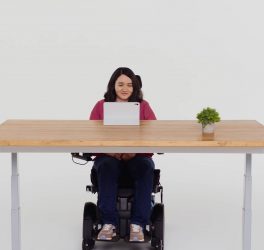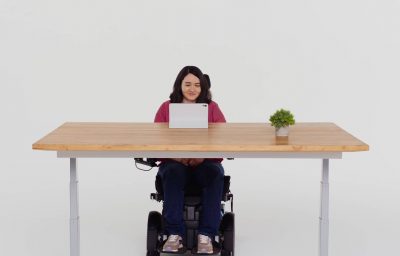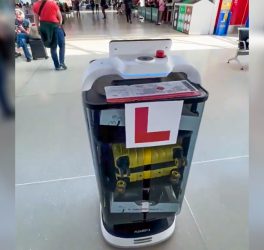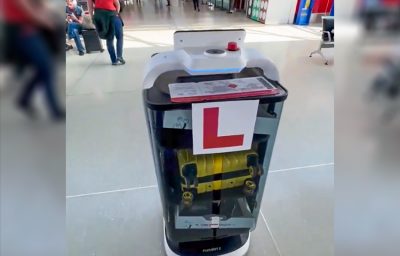
Through a collaborative effort, Brock University and Niagara College (NC) have jointly created an immersive virtual reality (VR) tool. This innovative tool is designed to offer students insights into the real-life encounters and experiences of individuals with disabilities within the context of post-secondary campuses.
The unique collaboration called “IT’S AN IDEA (Inclusion, Diversity, Equity and Accessibility) Learning to Foster Authentic Inclusion for Accessibility Through VR Simulations” was funded by a $105,000 grant from the eCampusOntario Virtual Learning Strategy, which is supported by the Ministry of Colleges and Universities.
The VR simulations were developed and tested by Brock professor Maureen Connolly, Director of the Brock-Niagara Centre of Excellence in Inclusive and Adaptive Physical Activity (CAPA), NC professors Theresa Anzovino and Jamie Oresar, and NC Adaptive Technology Specialist Jim McEwen to give students a window into the lives of people with disabilities, raise awareness about ableist interactions, and help students learn appropriate responses and strategies for challenging ableism.
“My NC partners and members of the CAPA Community Advisory Council and I were committed to authentic consultation on the scenarios that we developed and to testing the scenarios with disability community members,” said Connolly. “This is a wonderful example of what can happen when a project is informed by principles of disability justice.”
This fall, the VR simulations will be included in Brock’s Accessibility Consultant Micro-Credential and a NC interdisciplinary course on equity, diversity, inclusion and decolonization.
By donning VR headsets with handheld controls, or using the PC version, can explore different perspectives by engaging with characters from different backgrounds. As they navigate four virtual scenarios set on post-secondary campuses, players learn more about ableism and physical, architectural and attitudinal barriers to inclusion and accessibility.
“As NC employees with disabilities, it was important to us that the simulations be centered on authentic lived experiences of the disability community,” said McEwen. “Using the power of immersive VR, for a moment, you are able to get a firsthand glimpse of how ableism, microaggressions and systemic obstacles can affect people with disabilities.”
The simulations were programmed by Niagara Falls e-learning company XpertVR, a Niagara Falls e-learning company that was co-founded by former Brock students Drew MacNeil (BBA ’19) and Evan Sitler-Bates.
“It was a breath of fresh air to collaborate with a team that shares our vision of making education accessible, engaging and impactful for everyone,” said Sitler-Bates. “Our aim is for this project to have a substantial impact on Ontario institutions and eventually extend to other institutions and people worldwide.”
The project aligns with the Accessibility for Ontarians with Disabilities Act (AODA) goal for the province to be accessible by the year 2025. The open-source digital content project has sector-wide relevance in its ability to help post-secondary institutions build accessibility into programs of study and training. It is housed in eCampusOntario’s Virtual Learning Strategy Collectionfor anyone to use through an Ontario Commons License or a Creative Commons license.
“The next 18 months is really important to bring people up to speed on the AODA requirements,” said Connolly. “Architectural change is expensive but relatively simple. Attitudinal change may be the hardest of all, and it is why we designed the scenarios the way we did.”
The simulations were tested by Brock’s CAPA Community Advisory Council and members of different disability communities as well as NC’s Centre for Academic Excellence, Centre for Professional and Organizational Development, and Health, Wellness and Accessibility Services. They were also piloted to a group of students from the College’s Equity, Diversity and Inclusion General Education elective.








